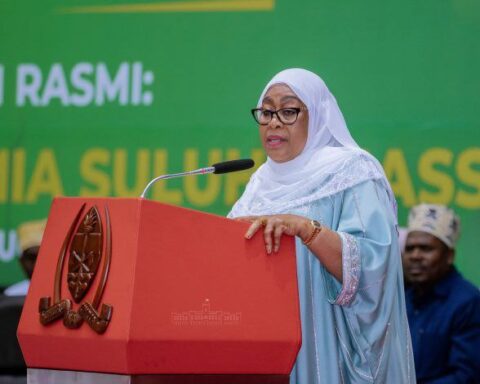The Tanzanian government has unveiled a significant initiative to bolster its social insurance funds through the introduction of new taxes on the gambling industry.
This move, announced by the Minister of Finance, Dr. Mwigulu Nchemba, during the national budget presentation for the fiscal year 2024/2025, aims to generate substantial revenue to support vulnerable and special groups within the country.
Dr. Nchemba detailed the proposal, which includes a 10% tax on the value of gambling stakes and an additional 10% tax on advertising fees for gambling businesses. These advertising taxes will apply to all gambling promotions aired on television, radio, and printed in newspapers.
According to the Minister, the government anticipates that these levies will significantly enhance the funds available for social insurance programs, ensuring that the most vulnerable Tanzanians receive necessary social protections.
The proposed taxes are part of a broader strategy to diversify Tanzania’s revenue streams and reduce dependence on traditional income sources. By targeting the burgeoning gambling sector, the government aims to tap into a lucrative industry that has seen considerable growth in recent years. The additional revenue is expected to support health, education, and social welfare programs, aligning with the government’s commitment to improving the quality of life for its citizens.
ReadMore;Why Small Scale Businesses Hesitate With Tax Receipts
Despite the government’s optimistic outlook, the proposal has sparked a mixed response. Critics argue that the new taxes could place a burden on the gambling industry, potentially making it less attractive to both operators and consumers. There are concerns that increased costs could lead to reduced participation in gambling activities, thereby affecting the industry’s profitability and growth.
However, proponents of the initiative contend that the social benefits of increased funding for vulnerable groups far outweigh the potential downsides. They also emphasize that responsible gambling measures will remain in place to protect consumers from potential harms associated with gambling. The government has assured that the funds raised will be directed towards impactful social programs, providing a safety net for those in need.
This move follows a growing trend among African nations to leverage taxes on the gambling industry to fund social programs. For instance, Ghana recently implemented a similar 10% tax on betting and lottery winnings to enhance domestic tax revenue mobilization
Tanzania’s decision is seen as a strategic step towards ensuring sustainable funding for its social insurance schemes, while also tapping into the economic potential of the gambling sector.
The proposed taxes are set to take effect in the upcoming fiscal year, pending approval by the Tanzanian Parliament. If passed, this initiative could mark a significant shift in how the government funds its social welfare programs, potentially setting a precedent for other countries in the region. The outcome of this proposal will be closely monitored by policymakers and stakeholders, both within Tanzania and beyond.







Pretty nice post. I simply stumbled upon your blog and wished to say that
I’ve truly enjoyed surfing around your blog posts.
In any case I’ll be subscribing in your rss feed
and I’m hoping you write once more very soon!
I have been browsing online more than 4 hours today, yet I never found any interesting article like yours.
It is pretty worth enough for me. In my view, if all site owners
and bloggers made good content as you did, the internet will
be much more useful than ever before.